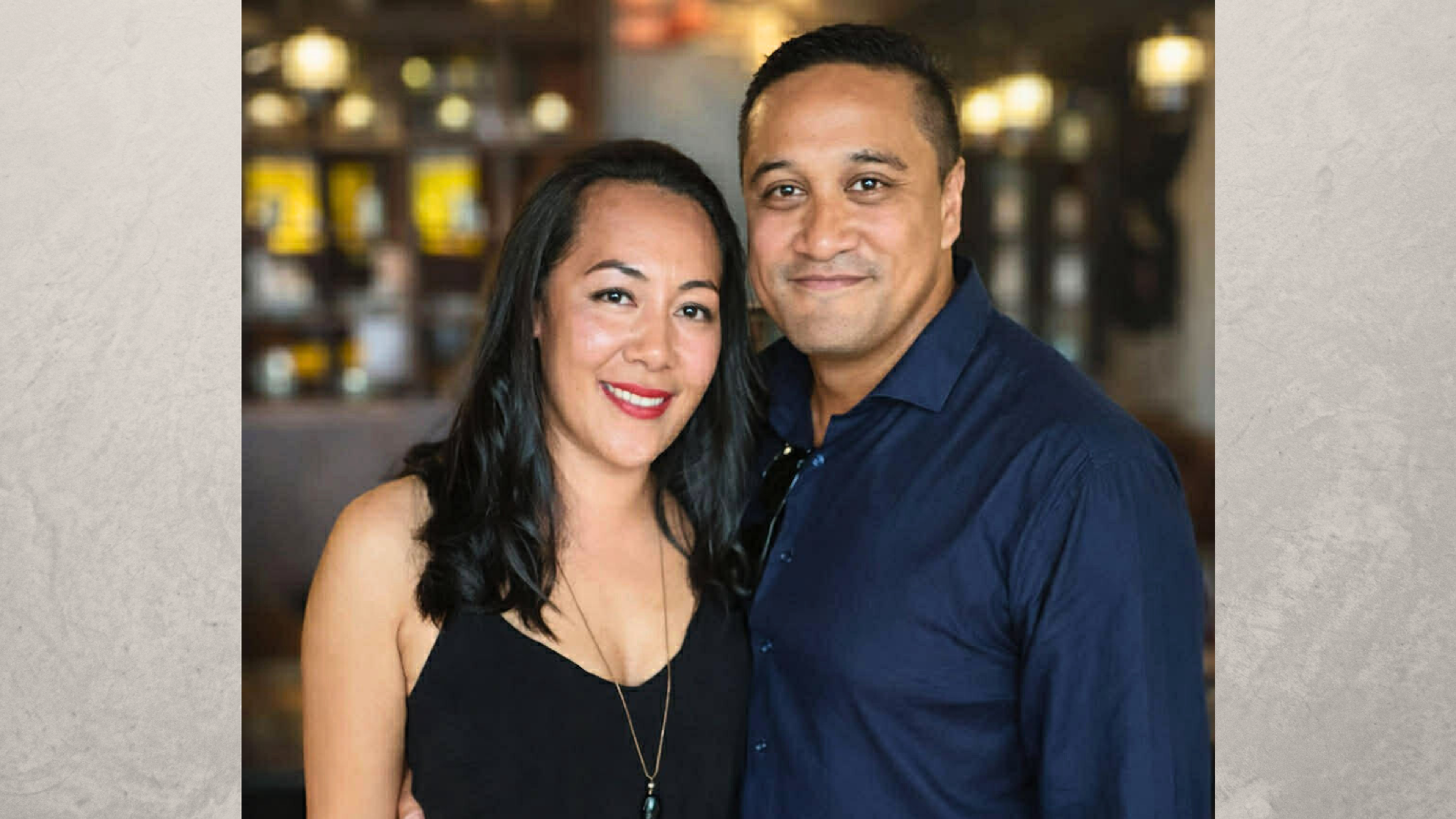

Māori and Pacific voices lead indigenous push for climate action at COP30 in Brazil
Standing on the frontlines of the climate crisis, advocates are bringing their ancestral wisdom to the global summit in Belém.

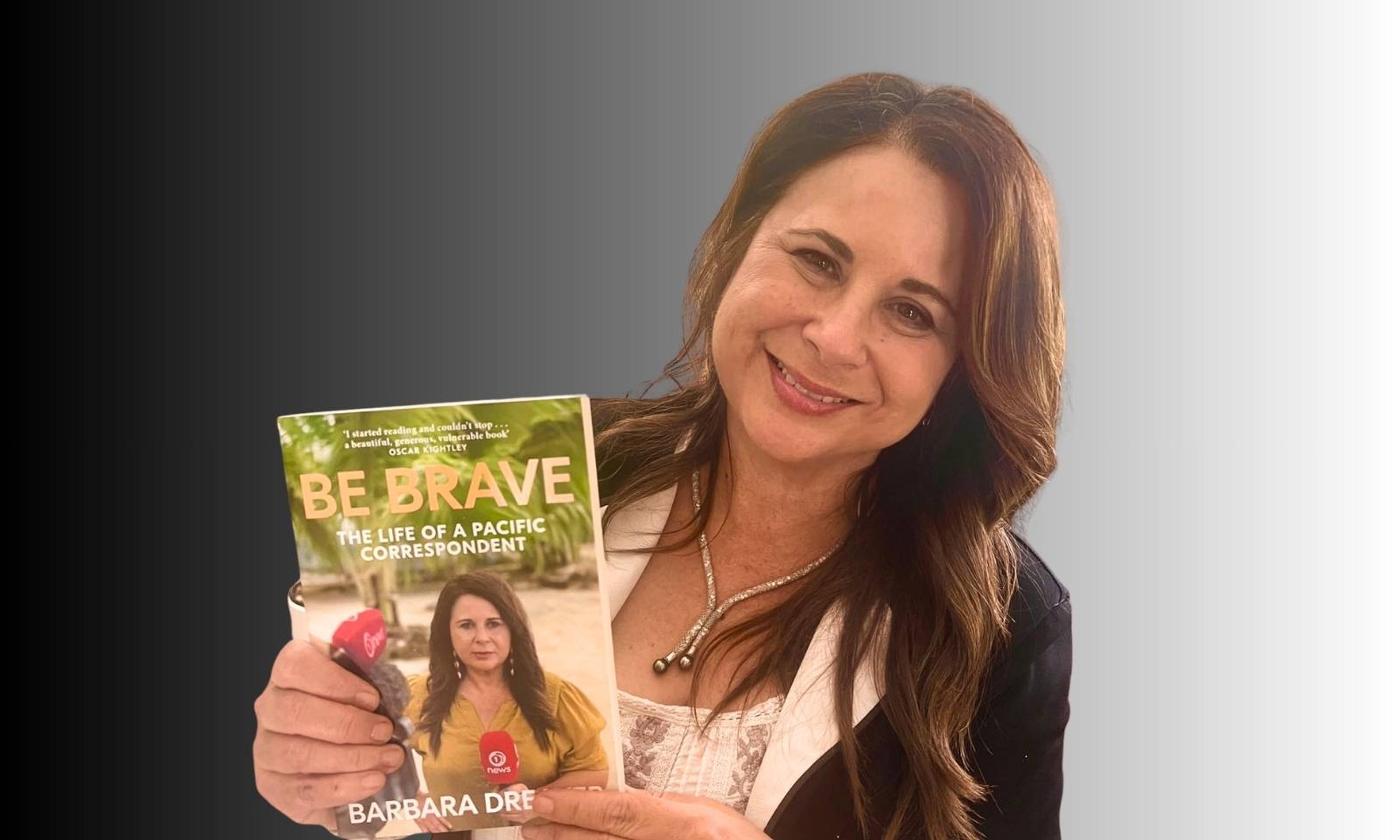
‘Without fear or favour’: Barbara Dreaver chronicles 30 years on the Pacific frontline
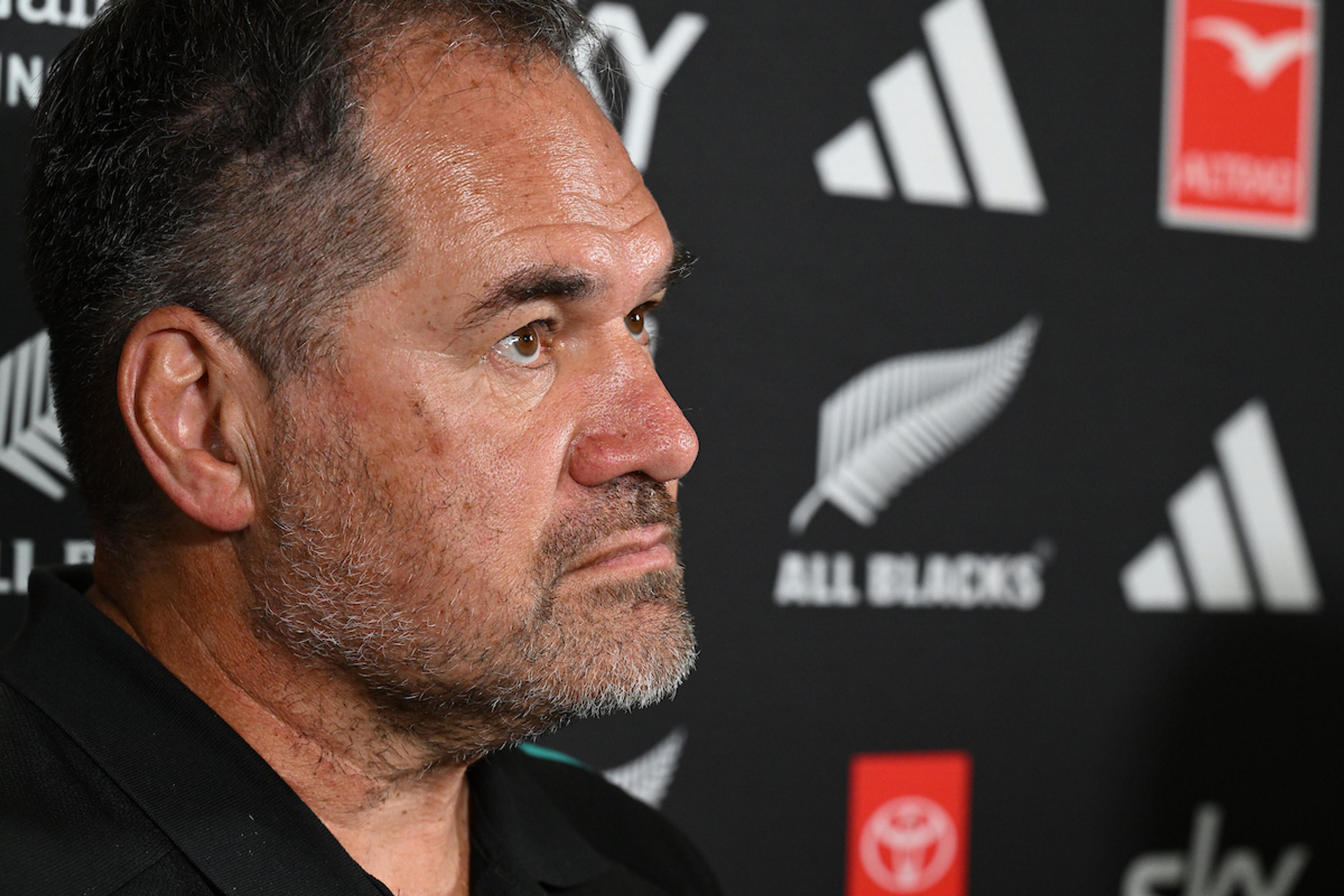
Dave Rennie becomes first All Blacks coach of Pacific heritage


Tongan family in Abu Dhabi recount explosions as Middle East conflict escalates

‘Without fear or favour’: Barbara Dreaver chronicles 30 years on the Pacific frontline

Dave Rennie becomes first All Blacks coach of Pacific heritage

“If the Pacific is well, then the world is well.“
That guiding principle is driving Māori and Pacific delegates as they arrive at the United Nations Climate Conference in Brazil, determined to ensure indigenous voices are heard at the heart of the global climate negotiations.
They are carrying generations of knowledge, resilience, and responsibility for the planet’s future.
Māori and Pacific delegates in Belém are representing Aotearoa New Zealand, the Cook Islands, Federated States of Micronesia, Fiji, Kiribati, Marshall Islands, Nauru, Niue, Palau, Papua New Guinea, Sāmoa, Solomon Islands, Tonga, Tuvalu and Vanuatu.
Speaking at the opening ceremony on Monday, Dr Maina Vakafua Talia, Tuvalu’s Environmental Minister, urged world leaders to take stronger actions to prevent global warming and to phase out fossil fuels.
“We had high hopes that this new agreement would give us the necessary legal measures to protect Tuvalu from the worst impacts of climate change and sea-level rise,” Talia says. “Ten years on from Paris, we are gravely concerned about the slow progress in delivering significant emission reductions to ensure our survival.”
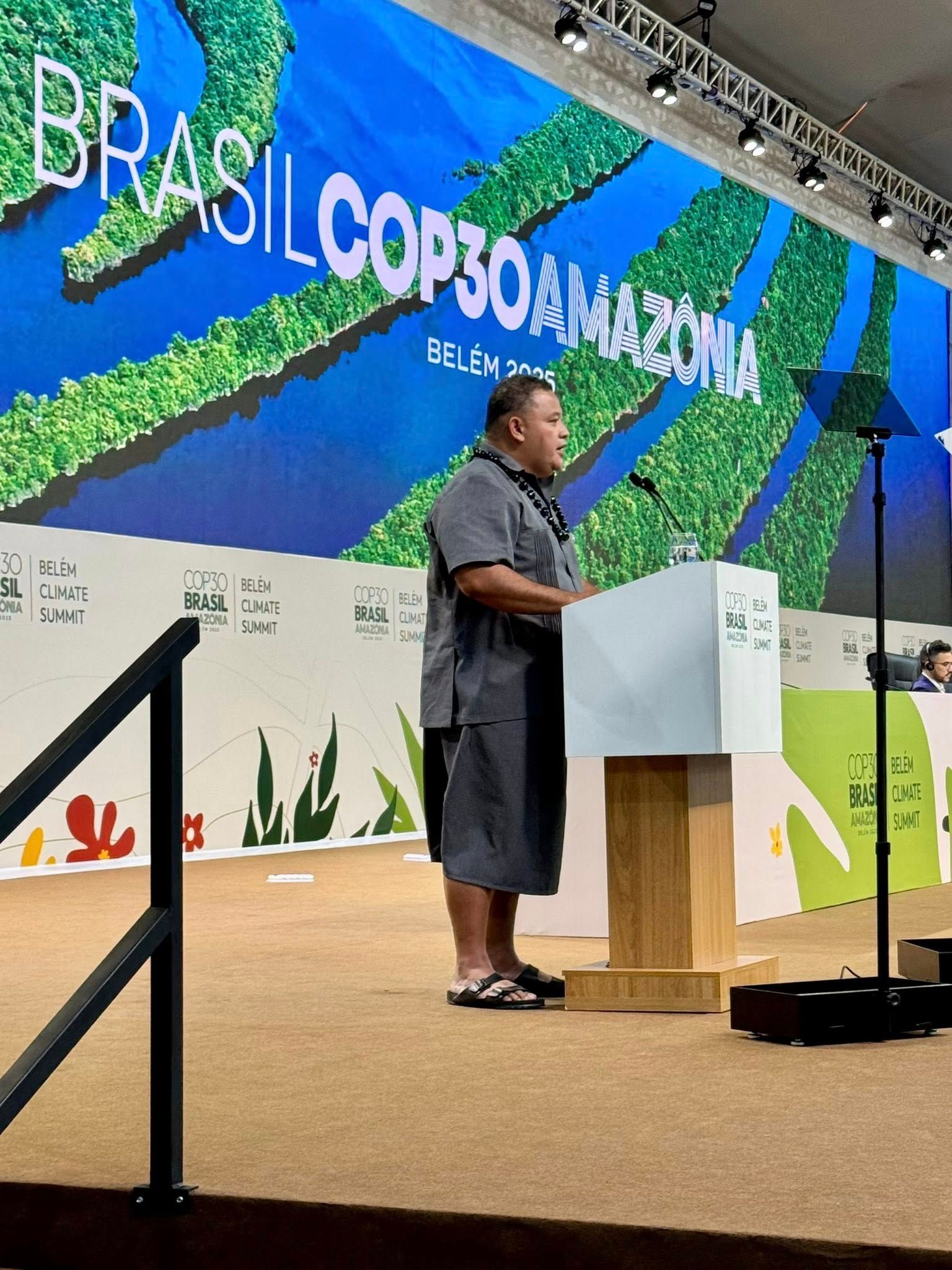
Tuvalu MP Maina Vakafua Talia delivers Tuvalu's National Statement at COP30. Photo/Facebook
His plea comes as the New Zealand government makes further changes to the Emissions Trading Scheme (ETS), following a decision earlier this year to relax emission reduction targets and extend the timeframe by five years.
The absence of the United States, China, and India, the world’s three largest emitters, has also drawn criticism. Talia addressed US President Donald Trump directly over his country’s withdrawal from the Paris Agreement, saying, “Mr President, this is a shameful disregard for the rest of the world.”
Among the estimated 50,000 attendees is Te Kāhui Pōkere, a delegation of nine rangatahi Māori and the first iwi-mandated group to attend a COP (Conference of the Parties) meeting.
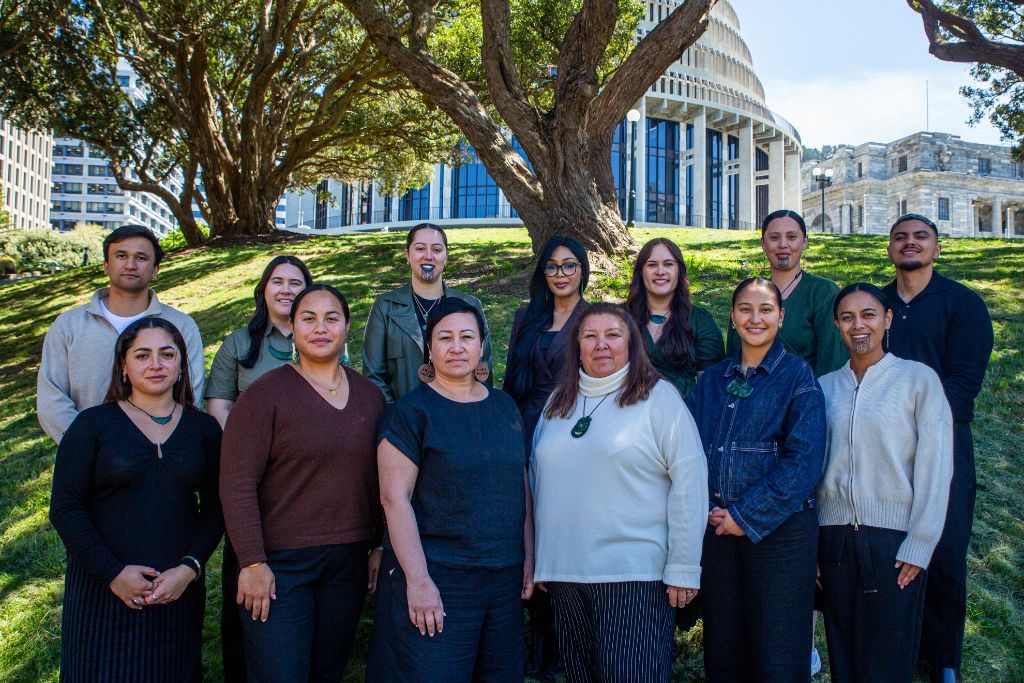
Te Kāhu Pōkere, an iwi-mandated Māori youth delegation representing rangatahi from across the motu, will carry the voices of whānau, hapū, and iwi to the global stage, bringing mātauranga Māori (Māori knowledge) and Indigenous leadership to the centre of the climate conversation. Photo/Supplied
Travelling under the banner of the National Iwi Chairs Forum (NICF), Te Kāhui Pōkere will join representatives from more than 100 nations in Belém to discuss climate policy and advocate for indigenous-led solutions.
For Waimarama Hawke (Ngāti Whātua Ōrākei), the kaupapa is deeply personal. Her grandfather, the late Joe Hawke, led the Bastion Point occupation that returned ancestral land to their iwi.
Hawke, 29, says being part of the COP30 delegation is a “full-circle” moment, linking her family’s activism to global climate action.
“My grandfather’s leadership at Takaparawhau has shaped who I am,” she says. “I had a very politicised upbringing, steeped in mana motuhake and tino rangatiratanga (self-determination). I carry a legacy to ensure I leave our home in a better state than it was passed down to me.
“My commitment to the environment, to our taonga, and to mana motuhake stems from that experience on the whenua. We’re honouring our tūpuna for the well-being of our mokopuna.”
Unlike official delegations, Te Kāhui Pōkere is completely self-funded and has received encouragement from Climate Change Minister Simon Watts and Dame Jacinda Ardern, the COP Envoy Ambassador for Oceania, who will meet them again in Brazil.
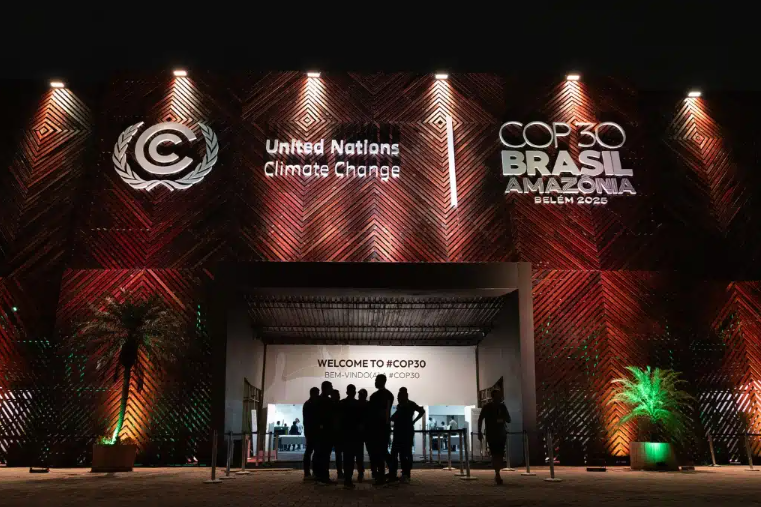
Around 50,000 people are expected to attend COP30 in Brazil. Photo/Earth.org
They will participate in side events and panel discussions at the Moana Pasifika Pavilion, sharing Aotearoa’s climate solutions.
“We’re proud to have one foot on the whenua and the other in global spaces of climate decision-making,” Hawke says.
Amplifying indigenous voices
The group is guided by Pou Take Āhurangi, the iwi chairs’ climate change forum, and chaired by Marama Royal, who attended COP29 in Azerbaijan last year.
“There was an absence of young indigenous people, especially rangatahi Māori,” Royal says. “I wanted our voice from Aotearoa to be heard, not just to talk about our challenges, but to share our solutions. When mātauranga Māori and science come together, we can lead global climate action.
“If the Pacific is well, then the world is well. We’re not asking the world to rescue us, but to help us mitigate what climate change is doing to our region.”
Listen to Waimarama Hawke's full interview below.
Hawke says the trip will help strengthen ties with other indigenous communities and the wider Pacific.
“The Amazon is known as the lungs of the earth, and our message is that the Pacific Ocean is the heart,” she says. “I’m ready to be a great listener when I need to be, acknowledging the wisdom of other indigenous peoples, but I also can’t wait to share our mātauranga too.”
The delegation departed Auckland on Monday and returns on 20 November.
Australia has put forward a joint bid with Pacific nations to host COP31 in 2026, but the location is yet to be confirmed, with Turkey also in contention.